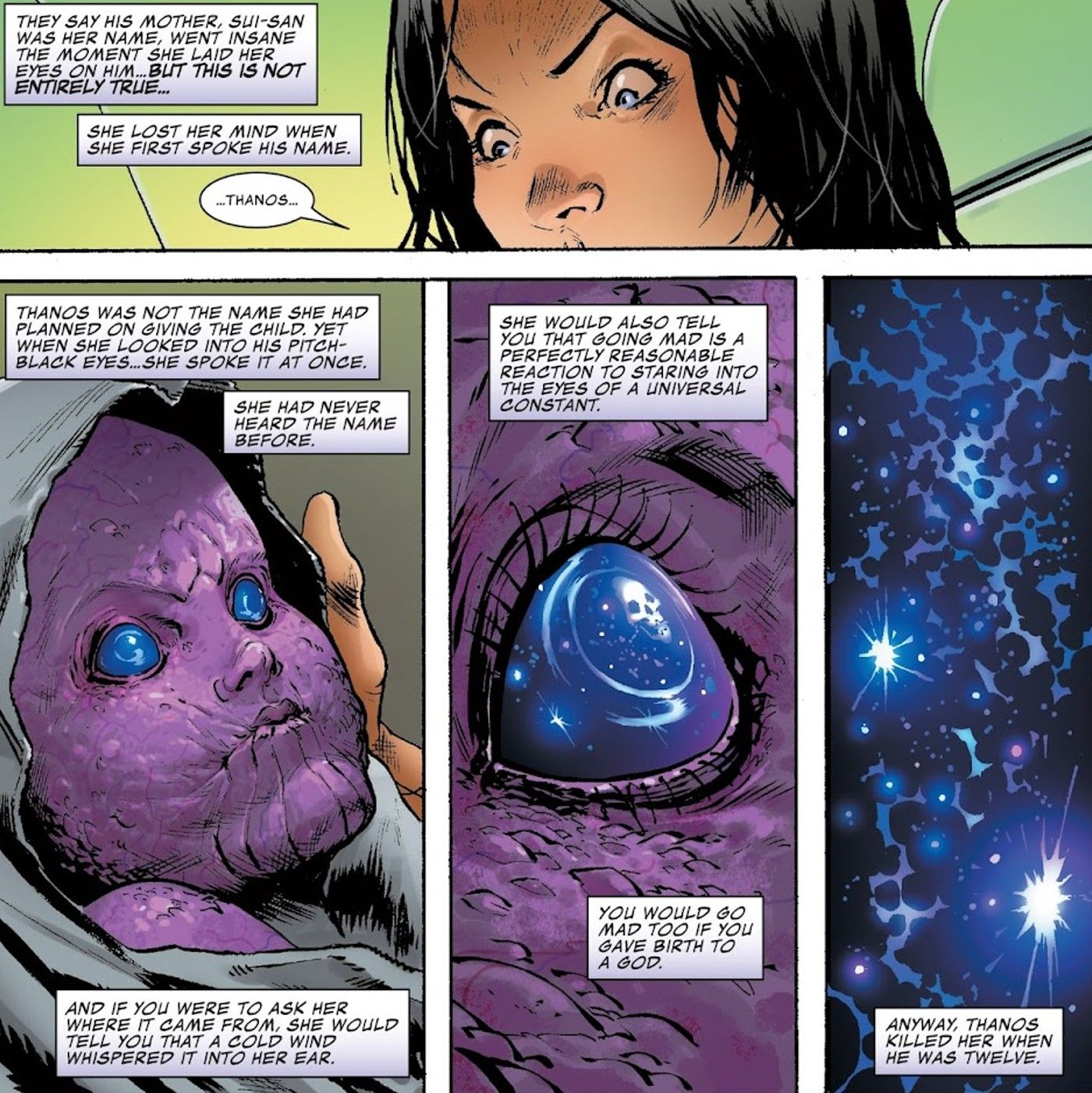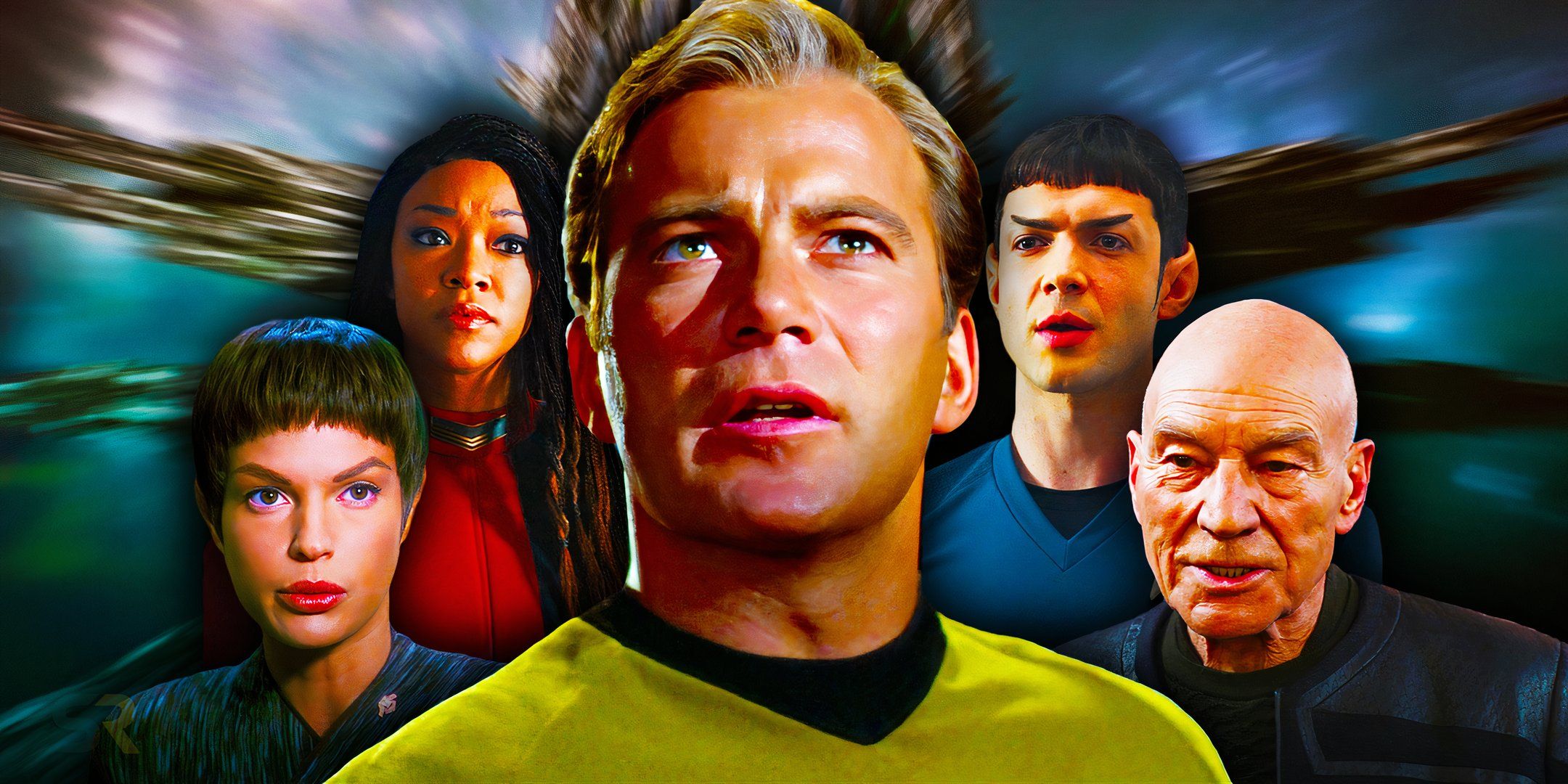While ‘Thanos‘ is a name known to any Marvel fan, most don’t know the true meaning of the Mad Titan’s moniker, or why it couldn’t have been included in his MCU appearances. The origin of Thanos’ name exposes his true, incredibly rare nature – one that simply makes him too overpowered to include it in the movies.
In the real world, Thanos was created by Jim Starlin, who conceived of the character while studying psychology, connecting him to ‘Thanatos’ – the human instinct to engage in life-threatening behavior. Thanatos was theorized to be balanced by Eros, the instinct to preserve one’s own life, from which Thanos’ heroic brother derives his own name. However, in Marvel comics, Thanos is an Eternal/Deviant hybrid – the result of his father’s misguided quest to bring new Eternal life into the galaxy.
In Thanos vol. 2 #14 (from Donny Cates and Geoff Shaw), Marvel fans learn that Thanos’ parents (A’lars and Sui-San) originally intended to name him ‘Dione,’ only changing their intentions once they set eyes on their mutated child. However, the issue also clarifies that Sui-San didn’t become obsessed with killing Thanos once she saw him, as most believe, but the first time she spoke his name. Sui-San had never even heard the name “Thanos” before, and had no idea where it came from. However, the issue’s narration reveals that in speaking Thanos’ name, his mother instantly recognized him as a Universal Constant, aka ‘One Apart.’

In Marvel lore, Universal Constants are beings who have become so powerful, they exist outside the “Cosmic Norm” (as described in Thanos: The Infinity Relativity, from Starlin.) Marvel has a very short list of Universal Constants, with Thanos and his longtime enemy Adam Warlock possessing the title, and the insectoid warlord Annihilus once coming close (before Adam and Thanos teamed up to stop him.) Universal Constants are incredibly hard to kill, and even then they rarely stay dead. More disturbingly, they transcend time and space, meaning that once someone becomes a Universal Constant, they seemingly always have been. In this way, Thanos is a cosmic ouroboros – someone whose later actions reach back through time to define his destiny.

This explains how – looking at her infant son – Sui-San was able to sense the depravity waiting in his future and give him the true name that spoke to the man he’d become. In the comics, this works perfectly, revealing the reason that Thanos always seems to come back even from death – often defeated, but never truly conquered, even if the rules of reality have to bend to restore him to life. However, this wouldn’t have worked in the movies, where fans needed a definitive defeat to close the book on an epic villain whose story was over. Thanos‘ true name is a sign of his twisted but cosmically significant future reaching back into the past, giving his mother a moment of understanding of who he’d one day become.





